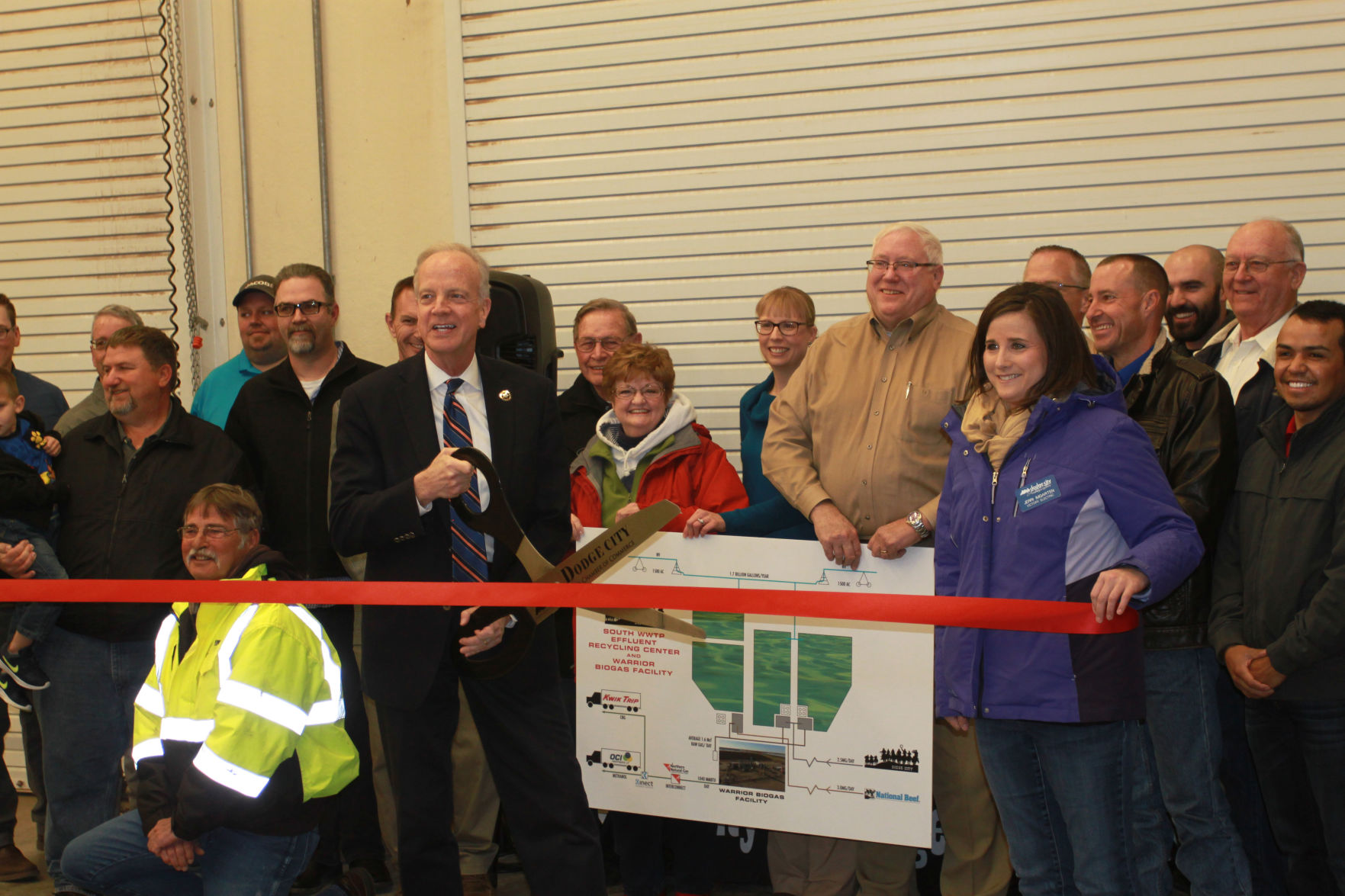The Warrior Biogas Project near Dodge City is an example of what happens when community leaders have a vision to improve the environment and benefit from the commitment, according speakers at a ribbon cutting April 14.
The approximately $9 million project, cleans raw gas generated by the city’s wastewater treatment plant into biogas that is sold as an environmentally-friendly fuel. The raw gas is generated from municipal and industrial wastewater from Dodge City and National Beef, a beef processing plant in Dodge City.
The Warrior Project started production of biogas this past February. The city was able to partner with Northern Natural Gas, who has a pipeline within a mile of the facility, to transport the biogas to customers throughout the United States.
One of those speakers, U.S. Sen. Jerry Moran, R-KS, said the project was an example of ingenuity that could generate money while being environmentally friendly. In farm country, the headlines are all about how the nation needs to meet the mandate for the Renewable Fuel Standard, the senator said. According to the Environmental Protection Agency, Congress created the RFS to reduce greenhouse gas emissions and expand the nation’s renewable fuels sector while reducing reliance in imported oil.
The Dodge City project is an example of how people can come together to solve a problem, make life better for others and also fit the RFS mission.
“To my knowledge no one is doing this,” he said. “You do things in a community not to benefit yourself but to help others in your community. This is an example of what we do to solve problems. Kansans have great common sense. We care about the end results. It’s not just about us today but for those who come later.”
The project is also an example of what happens when the private and public sectors work together, he said. Since he first entered Congress in 1997, Moran said one of his missions has been to help people in rural communities find ways to improve their quality of life. The Dodge City project meets that mission, he said.
Dodge City Mayor Kent Smoll said the plant is getting plenty of notoriety and at least one other community in Kansas has made an inquiry about how the biogas plant works. He likes the idea of taking municipal waste and turning it into a renewable energy source that benefits taxpayers and the environment.
The wastewater plant was constructed in 1985 and while it and its employees have received much recognition, Smoll said one of most common questions is about the highly visible flame burning all hours and whether it could serve another purpose. Now he can smile and say, “Finally, it has become feasible.”
The wastewater treatment plant is a non-discharging facility that treats 5.7 million gallons of wastewater a day and is located 9 miles south of Dodge City. An anaerobic digestion process produces raw biogas at an average rate of 1.6 million cubic feet of biogas per day, and Ray Slattery, director of engineering for Dodge City, said the facility is expected to generate about 2.25 million cubic feet in the summer.
The sale of the biogas is expected to generate about $3 million a year, Slattery said, and the plant should be paid off in five years.
Cherise Tieben, city manager, said the revenue will be used to pay down debt, go toward addressing deferred maintenance of infrastructure and help fund future capital improvement projects.
In February, the Warrior Project started producing pipeline quality biomethane to be sold as a transportation fuel.
The plant generates almost no waste. Many communities construct wastewater plants to treat effluent per state and federal regulations then release it into a nearby river. They then sell the dry content as fertilizer. In contrast, nearly all the waste collected by Dodge City is reused. Treated water is used to irrigate about 3,000 acres of cropland.
A ribbon cutting was sponsored by the Dodge City Area Chamber of Commerce with a reception that followed at Boot Hill Museum.
Dave Bergmeier can be reached at 620-227-1822 or [email protected].




